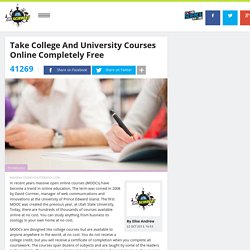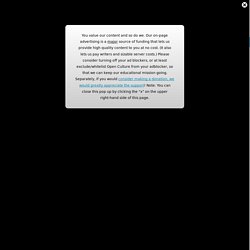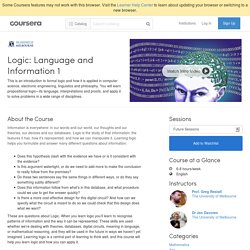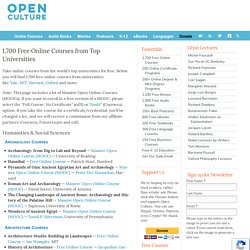

Take college and university courses online completely free. In recent years massive open online courses (MOOCs) have become a trend in online education.

The term was coined in 2008 by David Cormier, manager of web communications and innovations at the University of Prince Edward Island. The first MOOC was created the previous year, at Utah State University. Today, there are hundreds of thousands of courses available online at no cost. You can study anything from business to zoology in your own home at no cost. MOOCs are designed like college courses but are available to anyone anywhere in the world, at no cost. Coursera is perhaps the most well-known of the online education facilitators. EdX is another non-profit course site created by founding partners Harvard and MIT and based in Cambridge, Massachusetts. MIT has their own open courseware, where most of the materials used in the teaching of almost all of MIT's subjects are available on the Web, free of charge. European institutions are also getting in on the act.
Learn to Code with Harvard’s Intro to Computer Science Course And Other Free Tech Classes. I’ll confess, when it comes to computers, I’m pretty much strictly a user.

And these days, with the potential freedom and creatively afforded by open access software, the endless hacks for virtually everything, and the availability of free online computer classes, that seems like kind of a lame admission. So I’m tempted to rectify my programming ignorance by pushing through what promises to be a rigorous intro to computer science, CS50, Harvard’s introductory course for both majors and non-majors alike. The course offers a broad knowledge base to build on, as you can see from the description below:
Logic: Language and Information 1. About the Course Information is everywhere: in our words and our world, our thoughts and our theories, our devices and our databases.

Logic is the study of that information: the features it has, how it’s represented, and how we can manipulate it. Learning logic helps you formulate and answer many different questions about information: Does this hypothesis clash with the evidence we have or is it consistent with the evidence? Is this argument watertight, or do we need to add more to make the conclusion to really follow from the premises? If you take this subject, you will learn how to use the core tools in logic: the idea of a formal language, which gives us a way to talk about logical structure; and we'll introduce and explain the central logical concepts such as consistency and validity; models; and proofs. Course Syllabus Week 1. Week 2. Weeks 3–5.
Recommended Background This subject presumes no specialist background knowledge. Suggested Readings. 700 Free Online Courses from Top Universities. Advertisment Take online courses from the world’s top universities for free.

Below, you will find 1,700 free online courses from universities like Yale, MIT, Harvard, Oxford and more. Our site also features collections of Online Certificate Programs and Online Degree & Mini-Degree Programs. Note: This page includes a lot of Massive Open Online Courses (MOOCs). If you want to enroll in a free version of a MOOC, please select the “Full Course, No Certificate” (edX) or “Audit” (Coursera) option. Humanities & Social Sciences. Harvard Open Courses.
At Harvard Extension School, free and open learning is hardly a new concept.

In fact, the Extension School was founded with this mission in mind: to create an affordable way for any motivated student to take courses at Harvard. We stay true to this mission today, offering several free courses and nearly 800 for-credit courses at reasonable tuition rates. Explore our series of free or low-cost courses below. In addition, you can also browse Harvard University's Digital Learning Portal, which features online learning content from across the University, both free and fee-based options. Video accessibility. Abstract Algebra In these free videotaped lectures, Professor Gross presents an array of algebraic concepts. The Ancient Greek Hero American Poetry from the Mayflower through Emerson Discover how the United States developed its own national literature with Elisa New, Powell M.
Watch a video, in which Elisa New discusses the design of the HarvardX course and the topics covered. Bits China. 180 MOOCs to Start the New Year (Is This the Crest of the Wave?) MIT OpenCourseWare. 20 Places to Educate Yourself Online for Free.
It seems like these days you can learn just about anything online for free, but of course some of that information is better than others. The good news is there are plenty of reputable places to educate yourself online for free, and here’s a good 20 of them to get you started. 1. Coursera The coolest thing about Internet learning is that you can take college courses which in the past were only available to people who forked over immense sums of money to attend elite colleges. Coursera brings a bunch of those classes together into one site, offering nearly 400 courses ranging from Introduction to Guitar from Berklee College of Music to Constitutional Law from Yale. Courses typically include videos and certain coursework (such as online quizzes) that must be completed in a certain amount of time, as these courses are monitored by a professor. 2.